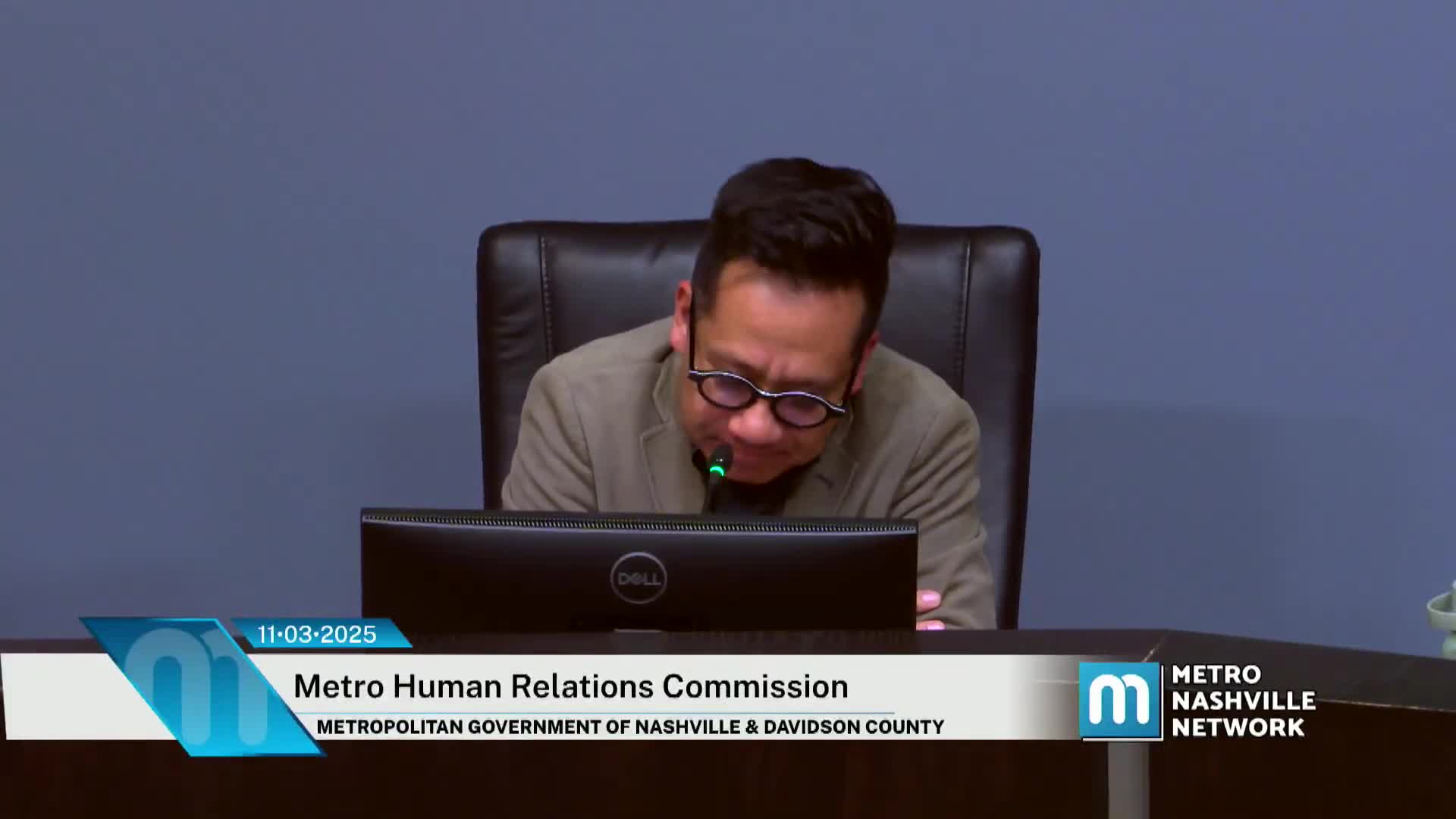Advocate urges Metro to pursue bond-funded 'social housing' and use public land for permanent affordability
Get AI-powered insights, summaries, and transcripts
Subscribe
Summary
A Stand Up Nashville presenter urged Metro officials to consider a municipal 'social housing' model, funded by a bond-backed housing production fund and sited on public land, to create permanently affordable housing in Nashville.
A representative from Stand Up Nashville delivered a detailed presentation to the Metro Human Relations Commission advocating for municipal tools to create permanently affordable housing, including the use of public land, mixed-income development and a housing-production fund seeded with municipal bonds.
"What if we think about housing not as a way to accumulate wealth, but as a way to house," the presenter said, framing social housing as an alternative to market-driven development that prioritizes profit over long-term affordability.
The presenter summarized how mixed-income projects can cross-subsidize deeply affordable units: for example, an 80/20 split in which market-rate units help support permanently affordable units placed on public land or held under a community land trust. She pointed to Montgomery County, Maryland, as a U.S. example that used bond issuance and a housing-production fund to finance multiple projects, and cited Chattanoogas recently announced $20 million bond as an emerging local example.
On financing, the speaker contrasted the capital stacks of market-rate development and tax-credit–driven affordable projects with the social-housing model: public investment and bond proceeds can be used as low-cost construction loans that are repaid and then recycled back into the fund to seed additional projects. The presenter said that payback schedules vary by design and that Montgomery County examples have repaid loans on accelerated schedules (speaker cited "about 7 years" in an example), while noting that longer payback terms would improve affordability.
The presenter also discussed scale and construction costs, saying Nashvilles per-unit construction costs are in the mid-hundreds of thousands of dollars and that a $100 million bond issuance could produce on the order of thousands of units over multiple projects when combined with other financing sources. Commissioners asked about implementation details, minimum project scale, and the citys capacity; speakers and commissioners agreed the approach requires political will, legal authority and a staffed office or partnership to package projects.
Why this matters: The presenter framed the approach as a way to create long-term affordability in a high-rent market and to expand the local toolbox beyond existing tax-credit and subsidy models. Commissioners noted a $100,000 city-funded study of social housing had been approved in the budget process and said the commission should assemble resources and advocacy points as the study proceeds.
Sources and attributions: Quotes and policy descriptions are drawn from the presenter's public remarks and the Q&A that followed. Specific municipal examples (Montgomery County, Chattanooga) were named by the presenter during the meeting.
